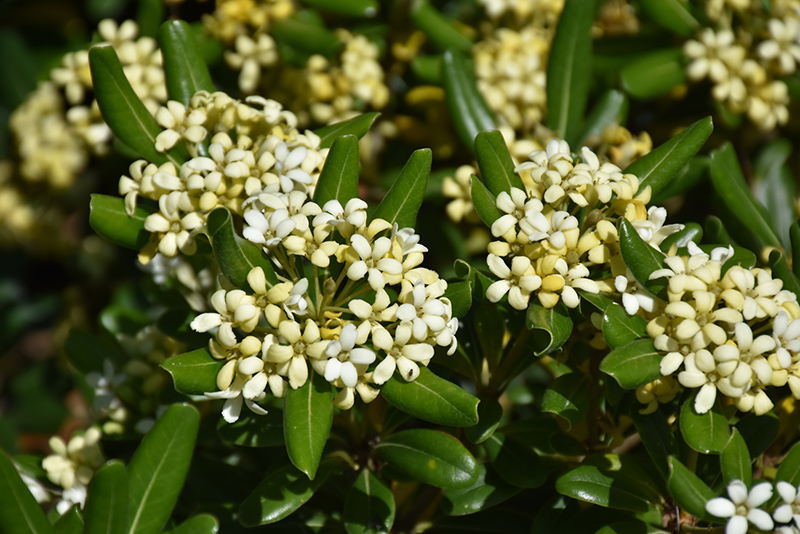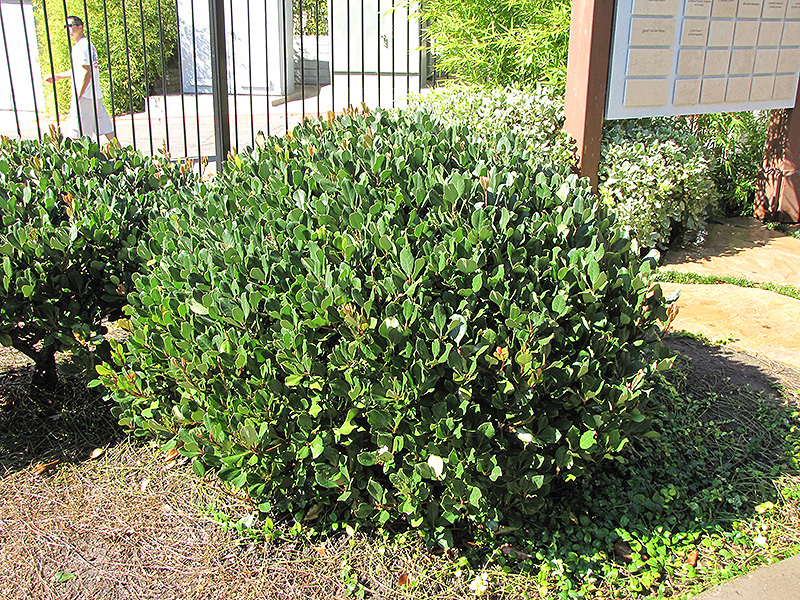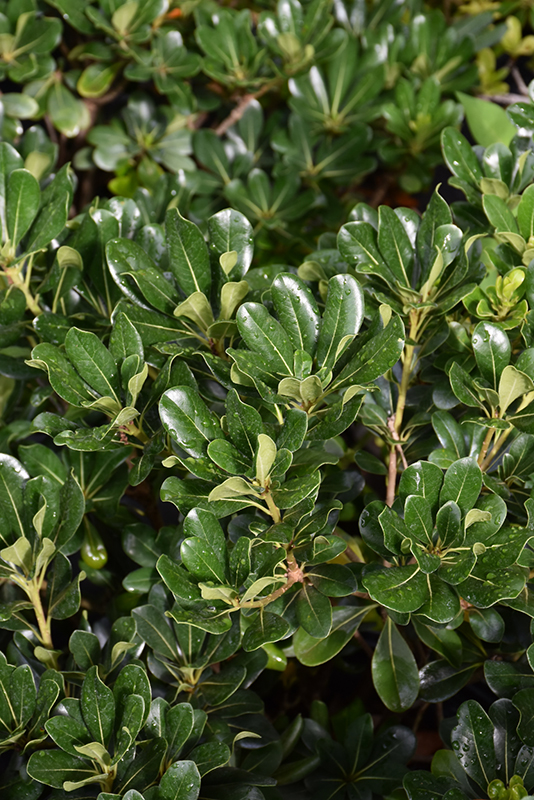Plant Finder
Height: 10 feet
Spread: 10 feet
Sunlight:
![]()
![]()
Hardiness Zone: 7b
Other Names: Japanese Pittosporum, Japanese Cheesewood
Description:
An excellent screening or hedge variety that may eventually reach ten feet high and wide without pruning; emerging foliage is yellow gold, maturing to dark glossy green; pretty clusters of white flowers in late spring; perfect for a hedge or screen
Ornamental Features
Japanese Mock Orange is bathed in stunning clusters of white cup-shaped flowers at the ends of the branches from late spring to early summer, which emerge from distinctive pink flower buds. It has attractive dark green evergreen foliage which emerges chartreuse in spring. The glossy oval leaves are highly ornamental and remain dark green throughout the winter. It produces buttery yellow capsules in late summer.
Landscape Attributes
Japanese Mock Orange is a dense multi-stemmed evergreen shrub with a more or less rounded form. Its average texture blends into the landscape, but can be balanced by one or two finer or coarser trees or shrubs for an effective composition.
This is a relatively low maintenance shrub, and can be pruned at anytime. It has no significant negative characteristics.
Japanese Mock Orange is recommended for the following landscape applications;
- Accent
- Mass Planting
- Hedges/Screening
- General Garden Use
Planting & Growing
Japanese Mock Orange will grow to be about 10 feet tall at maturity, with a spread of 10 feet. It has a low canopy, and is suitable for planting under power lines. It grows at a fast rate, and under ideal conditions can be expected to live for 40 years or more.
This shrub does best in full sun to partial shade. It does best in average to evenly moist conditions, but will not tolerate standing water. It is not particular as to soil type or pH. It is somewhat tolerant of urban pollution. This species is not originally from North America.






